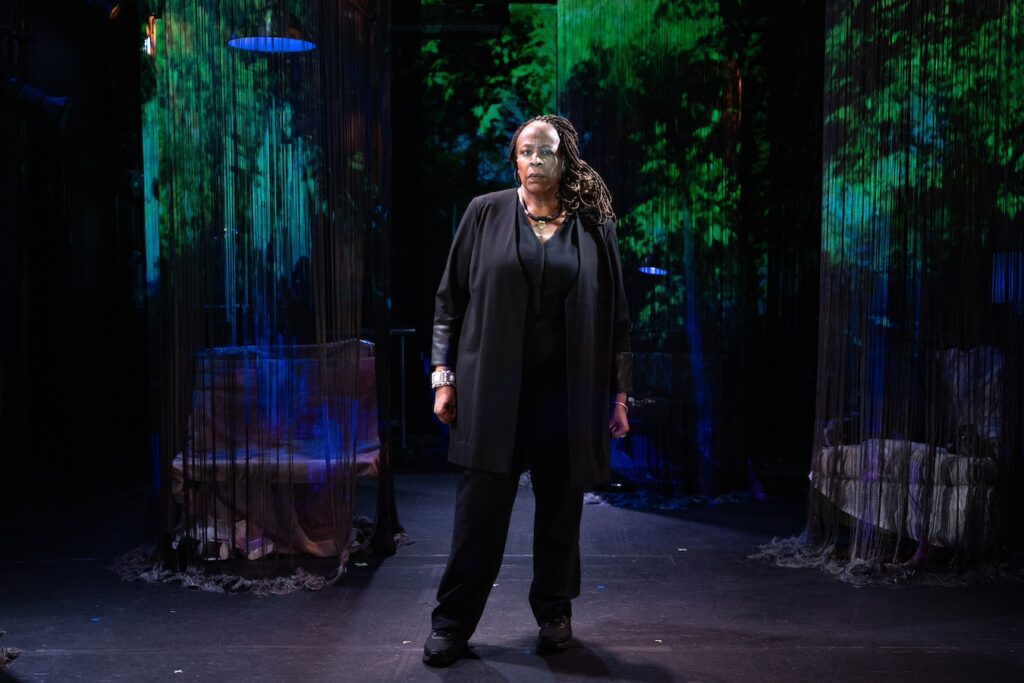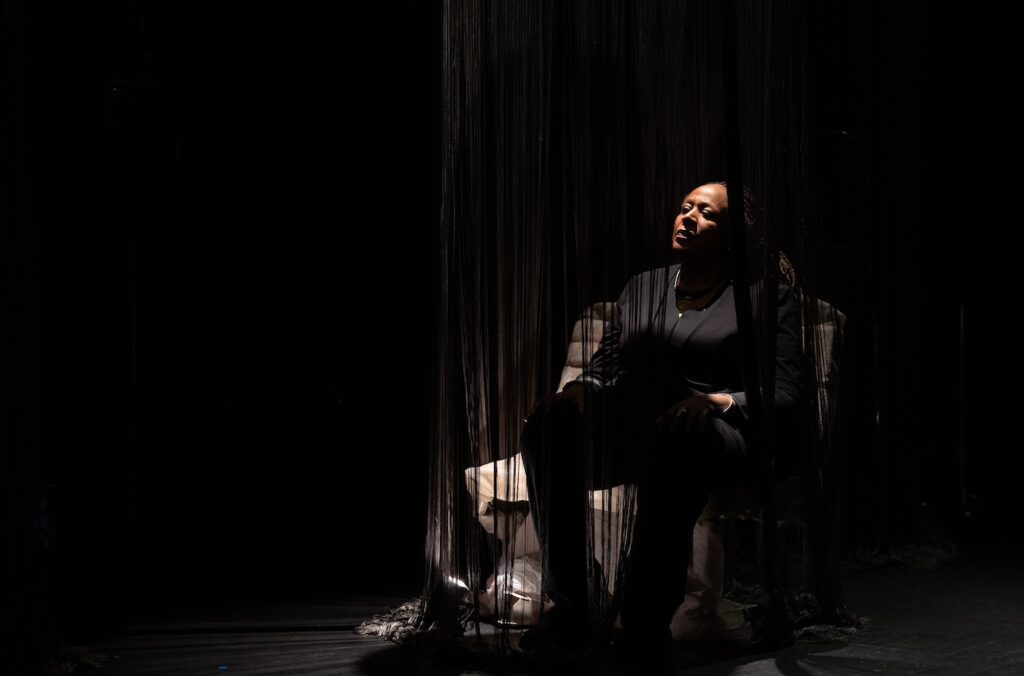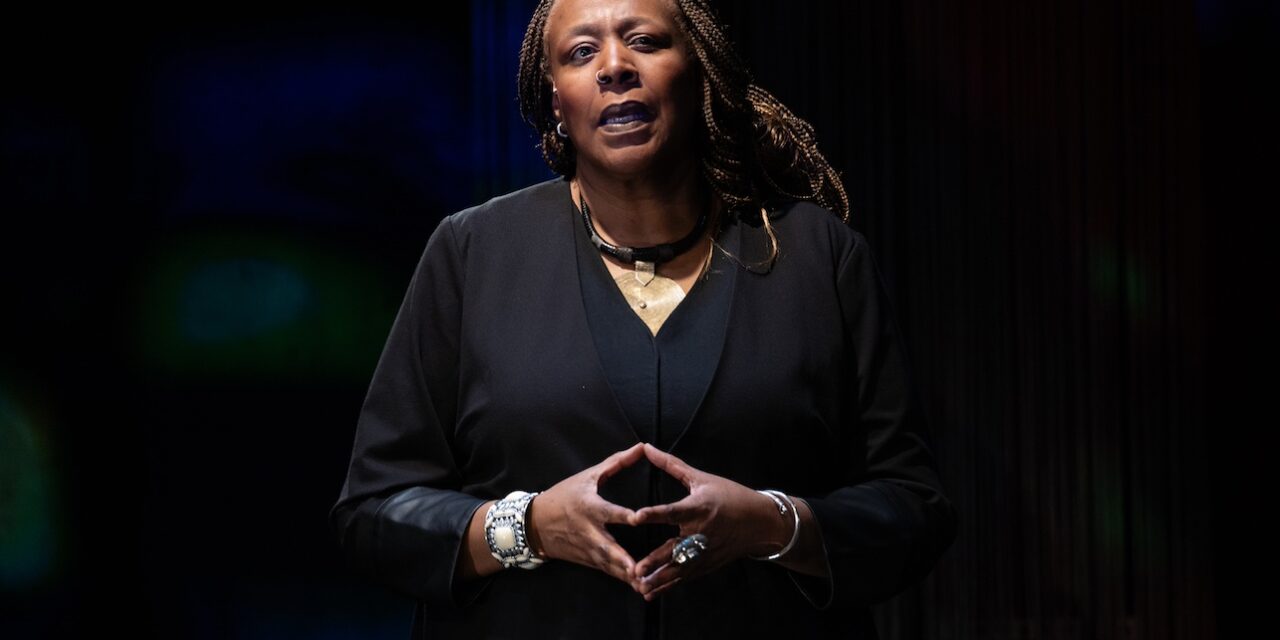Theater Review by Stuart Miller . . . .
When I first interviewed Dael Orlandersmith about Yellowman, a Pulitzer Prize finalist, more than twenty years ago, we went to a record store together after lunch. There I watched her debate another customer about Jimi Hendrix. Orlandersmith’s early solo plays like Monster and Beauty’s Daughter simmered but often boiled with heat, but in my article (for American Theatre) I noted that she wasn’t seeking conflict: “She simply loves the give-and-take of ideas, especially when it gives her the chance to challenge someone’s preconceived notions and peel back their outer masks, revealing a more genuine emotional self.”
That remains true for Orlandersmith in her latest play, Spiritus/Virgil’s Dance, now playing at Rattlestick Theater. Orlandersmith inhabits a Bronx-born man named Virgil as he reflects on and grapples with the meaning of life—his life—as time steadily, relentlessly marches on, wresting loved ones from our grasp.
“I was always aware of Time—time in terms of how it is spent,” we hear Virgil say before we see him.

Orlandersmith has already written an intensely emotional autobiographical play about family and death: Forever plunged us into her turbulent relationship with her alcoholic mother as the playwright roamed a cemetery and talked about how music helped her escape the world that was trapping her. In Spiritus there are glimpses of the playwright: Virgil spends time in a cemetery and leaves the Bronx for Manhattan where he works as a DJ, but he is very much his own man on his own path.
Virgil is intent on building a new life for himself, but when he thinks he is well and truly out, the Bronx pulls him back in—unlike Michael Corleone, who is dragged back to a life of destruction and tragedy, Virgil’s return home is one of reconnection and discovery. It is through death—the loss of first his mother and then his father—that he finds the meaning in life. He shucks off his more worldly ambitions to find a sense of community and to help others in their struggles.
Spiritus/Virgil’s Dance is a spare story, simply staged and told. In her stage directions, Orlandersmith notes that “Technically, Virgil is in the funeral home but what is of MORE importance is staging and lighting to get a sense of what is in Virgil’s thoughts. Therefore physical space should not be too literal.” In this production, scenic designer Takeshi Kata creates a half-dozen images that represent semi-abstract scenes of Virgil’s life; each is siloed on the small stage and surrounded by string curtains that allow us to see in but also allow projection designer Nicholas Hussong to flesh out Virgil’s thoughts with ethereal images.


Orlandersmith subtly but convincingly switches voices to inhabit Jimmy McHugh, a family friend and the local funeral director, and Peggy Callahan, a hospice nurse; but she spends most of her time as Virgil, speaking plainly, with no theatrical affect. The conversational tone creates an intimacy that keeps you leaning forward as if you’ve just met Virgil at a dinner party and he’s recounting his life just for you.
The show falters a bit in the latter stages, when Orlandersmith shifts her attention from Virgil’s life to his and Jimmy’s work in the funeral home, and then to Virgil’s work for the city, embalming the homeless. The stories are interesting enough but they occasionally lose sight of the show’s thematic and narrative threads—working for the city gives Virgil the chance to tend to the dead but removes him from the connection to the living and the community that had seemingly driven him to upend his life, yet he never muses about this. A crucial scene in which embalming a baby makes Jimmy question his faith yet somehow seems to reaffirm Virgil’s is also somewhat murky, undermining the emotional connection to Virgil just as we’re saying good-bye.
Still, Orlandersmith has created a flesh-and-blood New Yorker, one who you’ll remember later on as if he’s someone you knew once. And her meditations on time and life will haunt or inspire you as well:
“One becomes aware of THEIR own time
Do they look back at themselves Connecting/reconnecting
Wondering Have I done it right ?
Have I used time – MY time right ?
Can you look back and say Yes I did it right Or NO I didn’t do it right
Or Worse yet Did I do ANYTHING at ALL?”
Spiritus/Virgil’s Dance. Through March 9 at Rattlestick Theater (224 Waverly Place, between West 11th and Perry Streets, West Village). Run time – 70 minutes, no intermission. www.rattlestick.org
Photos: HanJie Chow


















